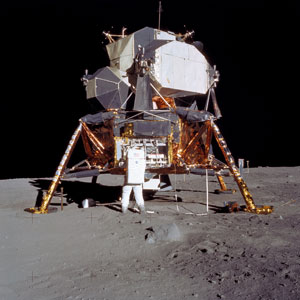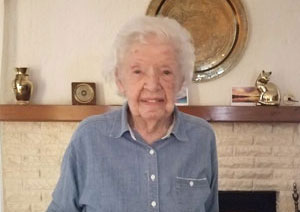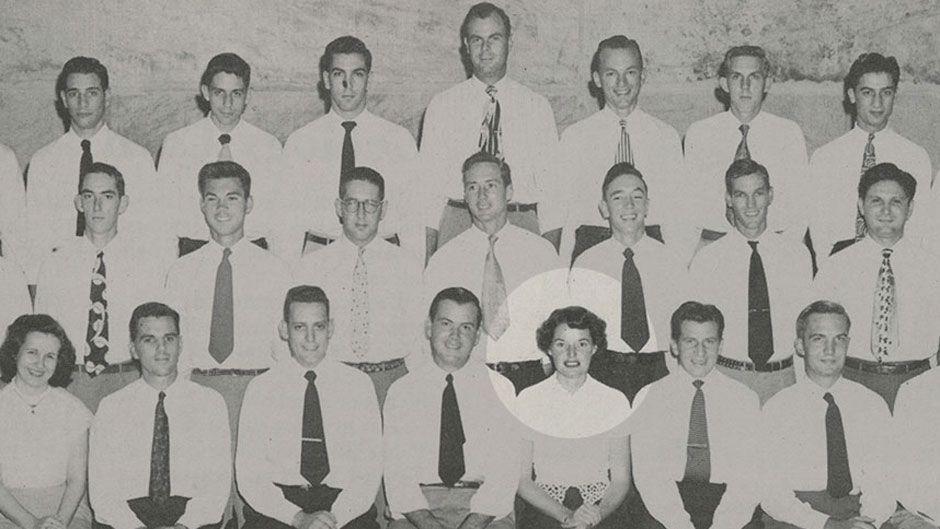The harsh environment of space is unforgiving, with everything from extreme heat and cold, radiation, debris impacts, and even sound waves from powerful rocket engines combining to pose a threat to spacecraft.
Shirley Hoffman Kilkelly was aware of that fact better than anyone. When the 1952 graduate of the University of Miami’s College of Engineering went to work for the Grumman Aircraft Engineering Corporation in the late ’60s, her job was to make sure that Apollo 11’s lunar module Eagle, which touched down at the moon’s Sea of Tranquility on July 20, 1969 with astronauts Neil Armstrong and Buzz Aldrin aboard, would operate properly after being exposed to the brutal conditions of space flight.
“The module consisted of many different systems, and all of them had to be tested to make certain they would be functional after being exposed to the environment of space,” said Kilkelly, who earned her degree in mechanical engineering. “So we would simulate everything from violent vibrations and heat to extreme cold and rapid acceleration.”
She was one of the few women engineers working on the Apollo program at the time. But Kilkelly, now 97, never considered herself a trailblazer. “It was just part of my job,” she said, though she admits that she is now pleased to see more females studying and becoming engineers.
As the world marks the 50th anniversary of Apollo 11, Kilkelly said she is ecstatic that plans for a return to Earth’s only natural satellite are underway, especially since NASA is planning to send the first woman to the moon.
“It would be worthwhile for us to go back,” she said. “We spent such a small amount of time there [during the six Apollo missions from 1969 to 1972]. With new equipment and new technology, there’s a lot more to learn.”


